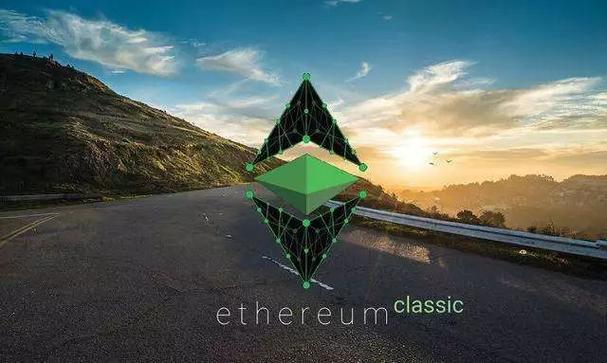
Are ETH and ETC the Same?
When it comes to cryptocurrencies, Ethereum (ETH) and Ethereum Classic (ETC) are two names that often come up in conversation. Despite sharing a common origin, they are not the same. In this detailed exploration, we will delve into the differences between ETH and ETC, covering various dimensions such as their history, technology, community, and market performance.
History
Ethereum was created by Vitalik Buterin in 2015, with the goal of building a decentralized platform that allows developers to create and deploy smart contracts and decentralized applications (DApps). The Ethereum network launched in July 2015, and its native cryptocurrency, ETH, was born.

Ethereum Classic, on the other hand, originated from a hard fork of the Ethereum network in 2016. This hard fork was a response to the DAO (Decentralized Autonomous Organization) hack, where a significant amount of ETH was stolen. The community was divided on how to handle the hack, leading to the creation of Ethereum Classic as a separate blockchain.
Technology
Both ETH and ETC are based on the Ethereum platform, which is a decentralized, open-source blockchain network. However, there are some key differences in their technology.
Ethereum (ETH) has undergone several upgrades over the years, including the Ethereum 2.0 upgrade, which aims to transition the network to a proof-of-stake consensus mechanism. This upgrade is expected to improve scalability, security, and energy efficiency.
Ethereum Classic (ETC) has remained relatively unchanged since its inception. It continues to use the original proof-of-work consensus mechanism, which is less energy-efficient than the proof-of-stake mechanism proposed by Ethereum 2.0.

Community
The communities surrounding ETH and ETC are distinct, with different values and priorities.
The Ethereum community is known for its innovation and focus on continuous improvement. It actively participates in the development of new technologies and upgrades, such as Ethereum 2.0.
The Ethereum Classic community, on the other hand, values the original vision of Ethereum and its commitment to decentralization. They believe that the hard fork was a betrayal of the original Ethereum protocol and have chosen to continue with the original blockchain.
Market Performance
When it comes to market performance, ETH and ETC have followed different paths.
Ethereum (ETH) has been one of the most popular cryptocurrencies, with a significant market capitalization. Its price has experienced significant volatility, but it has generally outperformed many other cryptocurrencies over the long term.
Ethereum Classic (ETC) has a smaller market capitalization compared to ETH. Its price has also been volatile, but it has not experienced the same level of growth as ETH. However, some investors believe that ETC has the potential to outperform ETH in the long run, given its commitment to the original Ethereum vision.
Conclusion
In conclusion, ETH and ETC are not the same. They have different histories, technologies, communities, and market performances. While ETH has focused on innovation and continuous improvement, ETC has remained true to the original Ethereum vision. As with any investment, it is essential to understand the differences between these two cryptocurrencies before making a decision.
| Comparison | Ethereum (ETH) | Ethereum Classic (ETC) |
|---|---|---|
| Origin | Created by Vitalik Buterin in 2015 | Hard fork of Ethereum in 2016 |
| Consensus Mechanism | Transitioning to proof-of-stake | Proof-of-work |
| Community Focus | Innovation and continuous improvement | Original Ethereum vision and decentralization |
| Market Performance | Significant market capitalization, volatile price | Smaller market capitalization, volatile price |



